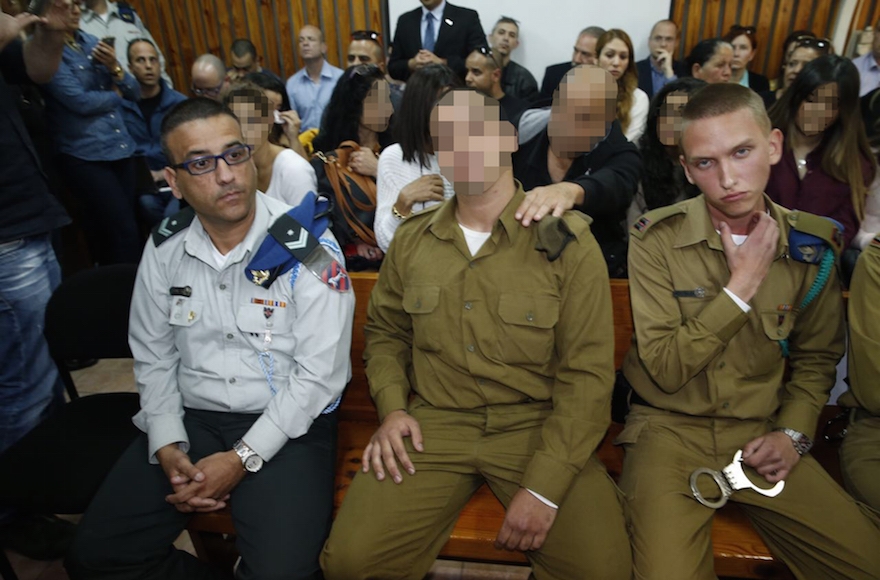(JTA) — Prosecutors from Israel’s Military Advocate General appealed the release from prison of an Israeli soldier facing trial for killing a wounded Palestinian terrorist in Hebron.
During deliberations Friday at a military tribunal in Tel Aviv over the appeal, head prosecutor Colonel Sharon Pinchas Zagagi dismissed the soldier’s claim that he shot Abed al-Fattah Yusri al-Sharif out of fear that the Palestinian was wearing an explosive vest, Army Radio reported. Zagagi said the soldier posed a danger to others, but the judge said he would be released from jail and confined to a military base.
The soldier, whose name was not released for publication and who is referred to in Israeli media as Sergeant A., shot the Palestinian “deliberately and without operational justification,” Zagagi said.
READ: Why 3 videos of a West Bank shooting are roiling Israel
On March 24, Sergeant A. was filmed shooting al-Sharif in the head while al-Sharif was supine on the pavement of a Hebron road. Al-Sharif was shot with another Palestinian after stabbing soldiers in the city. Soldiers killed al-Sharif’s accomplice but only wounded al-Sharif, who was alive when Sergeant A. killed him.
Prosecutors said Sergeant A. would be tried for murder but revised the indictment to manslaughter. Sergeant A. was to be released Thursday from prison to a military base, where a military judge said he would serve unconfined but unarmed until a verdict is delivered in his case. But his release was delayed pending a review of the prosecutors’ appeal against it.
The indictment’s revision follows the release of a second video that showed paramedics at the scene shouting about the possibility that al-Sharif was wearing an explosive vest — the reason given by A. for the shooting. But Zagagi argued that A. shot the terrorist in front of two officers. “He did not warn them, he did not shout. He shot the terrorist calmly and out of his own initiative, behaving not like someone in any emergency,” she said. “It clearly demonstrates the danger posed” by the soldier to others, she argued.
JTA has documented Jewish history in real-time for over a century. Keep our journalism strong by joining us in supporting independent, award-winning reporting.






